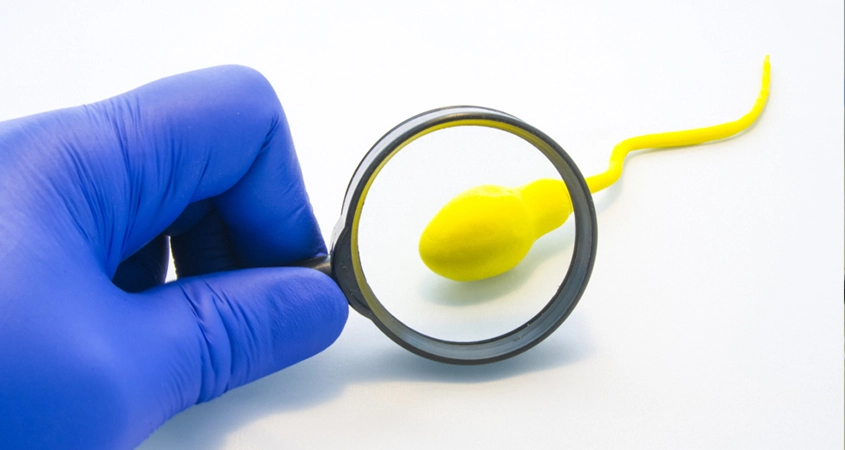There are many options, like fertility medicines, IUI, IVF, or ICSI. My doctor explained them step by step, which made it less overwhelming and gave us a clear path forward.

Male Infertility Treatment in Kenya
Becoming a father doesn’t always happen easily. Many men face fertility problems, but the good news is that help is available.
We offer trusted Male Infertility Treatment in Kenya to support your journey to fatherhood. Whether it’s sperm count, quality, or delivery issues, our expert team at Fertility Point provides solutions that are designed just for you.
What Affects a Man’s Fertility?
Male fertility depends on things like sperm count, movement, and overall quality. If there are blockages, low sperm numbers, or delivery problems, getting pregnant can become harder. We offer a full check-up to understand what’s causing the problem and guide you to the right Male Infertility Treatment in Kenya.
Most Common Reasons for Male Infertility
Here are some of the main causes that can affect male fertility:
-
Obstructive Azoospermia: No sperm is found in semen because of a blockage. This can happen due to past infections, injury, or birth.
-
TESE (Testicular Sperm Extraction): A method where sperm is taken directly from the testicles for IVF in cases of blockage.
-
Oligospermia: When the sperm count is low, it becomes harder to fertilize the egg.
-
Retrograde Ejaculation: When sperm goes into the bladder instead of out through the penis. This can happen due to diabetes, past surgeries, or some medicines.
-
Varicocele: Swollen veins in the scrotum that reduce sperm quality. Surgery can help improve this.
When Is It Time to Get Help?
If you’ve been trying to get pregnant for over a year without success, it may be time to explore Male Infertility Treatment in Kenya.
Also, if you’ve already been diagnosed with any of the conditions above, starting treatment early gives you a better chance at success.
Ways We Can Help You Become a Father
Fertility Point offers different treatment options based on what’s causing the problem. Here’s how we support men on their path to parenthood:
-
IVF with ICSI: A single healthy sperm is directly injected into an egg. This works well for men with low sperm count or poor sperm movement.
-
Surgical Sperm Retrieval: If there’s no sperm in the semen, we can use TESE or TESA to collect sperm from the testicles for IVF.
-
Varicocele Surgery: Fixing varicocele can help improve sperm health and increase fertility.
-
Medicines: Hormone-based treatments like Clomid can help improve sperm numbers and quality for conditions like oligospermia or retrograde ejaculation.
-
Lifestyle Guidance: Simple changes such as healthy eating, regular activity, quitting smoking, and reducing alcohol can make a big difference in sperm quality.
What Happens During the Treatment Process?
When you visit Fertility Point, our team will learn about your health history, lifestyle, and challenges. We will then create a personal plan that includes tests, sperm checks, and discussions about the best Male Infertility Treatment in Kenya for you.
What Results Can You Expect?
(i) Treatment results vary based on your condition, age, and overall health.
(ii) Many men with low sperm count see success through IVF with ICSI.
(iii) Men with varicocele often see improvements after surgery.
(iv) Fertility is a journey, and results take time, but with the right care, the chances are always better.
Why So Many Trust Fertility Point
Fertility Point is known for its expert care and friendly support. We listen, understand, and guide you with confidence.
We offer not just medical help but also emotional support, so you feel strong and informed throughout your journey with Male Infertility Treatment in Kenya.
Start the Journey to Fatherhood Today
If you're ready to take action, we’re here to help. Book a consultation and let’s discuss the best Male Infertility Treatment in Kenya for your needs.
FAQ's
What treatments are available if natural conception doesn’t work?
What is male infertility?
Male infertility is when a man has difficulty causing pregnancy in his partner, usually due to problems with sperm production, function, or delivery.
Is male infertility permanent?
Not always. Many cases can be treated with medication, surgery, or assisted reproductive technologies. Even when sperm count is very low, advanced treatments like ICSI can help achieve pregnancy.
Does age matter for men like it does for women?
Yes, age matters for men too, though not as sharply as for women. Male fertility declines gradually after 40–45 years, leading to lower sperm quality, reduced testosterone, and higher chances of genetic risks, which can make conception more difficult.
How is male infertility diagnosed?
Doctors may recommend semen analysis to check sperm count and quality, hormone tests, physical examinations, ultrasounds, or genetic testing.
